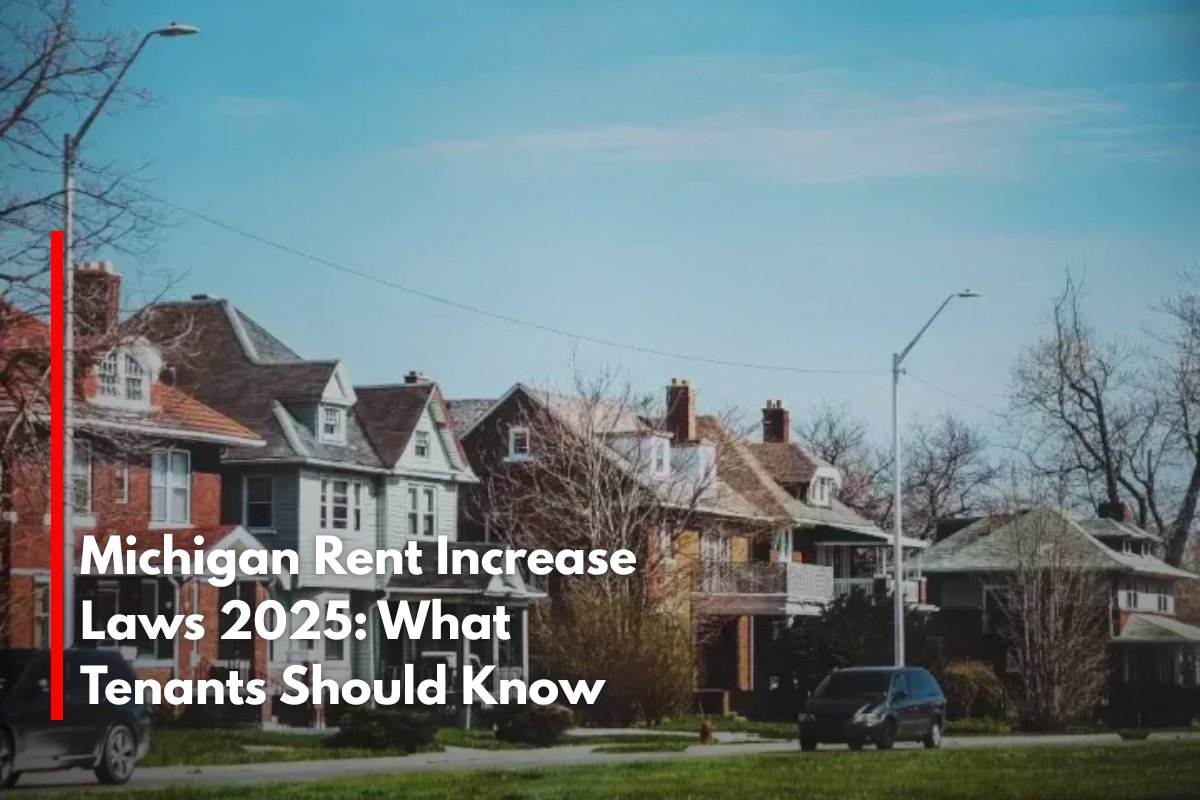In 2025, Michigan does not have any statewide rent control laws in place. This means landlords are legally allowed to raise rent by any amount they choose without a maximum limit. Unlike some states that regulate rent increases to keep housing affordable, Michigan landlords can increase rent as high as they consider appropriate, which can contribute to higher rental prices in the state.
Rent Increase Frequency and Lease Terms
Landlords in Michigan can raise rent whenever the lease terms allow, but they cannot increase rent in the middle of a fixed-term lease unless the lease agreement explicitly states otherwise.
For month-to-month tenants, landlords may raise rent at the end of any rental period, typically with proper notice provided. This practice means renters with month-to-month leases might experience more frequent rent changes compared to tenants locked into fixed-term agreements.
Notice Requirements for Rent Increases
Although Michigan law does not impose a fixed maximum rent increase, it does require landlords to provide proper notice before raising rent. Tenants must be given at least a 30-day written notice prior to the new rent amount taking effect.
Many landlords voluntarily offer longer notices, such as 60 to 90 days, especially for significant rent hikes of 5-10% or more, to give tenants time to prepare or relocate if needed. This notice period is key to protecting tenants from sudden, unexpected rent increases.
Proposed Tenant Protection Legislation
To address tenant concerns amid Michigan’s housing challenges, lawmakers have introduced bills aimed at strengthening tenant rights. One notable proposal includes requiring landlords to provide 90 days’ notice on rent increases tied to lease renewals.
Other bills aim to empower tenants to withhold rent or repair costs if landlords do not address urgent repair requests promptly (within 48 hours). These legislative efforts illustrate a growing focus on tenant protections despite the current absence of rent control limits.
Security Deposits and Other Landlord-Tenant Laws
In addition to rent increase regulations, Michigan landlords can charge security deposits up to 1.5 times the monthly rent. Security deposits must be returned within 30 days of tenant move-out with an itemized list of damage deductions if applicable. While these rules do not restrict rent hikes directly, they form part of the overall tenant protections in the state.
What Tenants Should Do
Review lease agreements carefully to understand any provisions related to rent increases.
Ensure the landlord provides proper written notice before any rent hike.
Stay informed about pending legislation that may affect rent increase rules and tenant rights.
Communicate with landlords if facing unaffordable rent hikes to explore possible negotiations or lease options.
Michigan tenants should be aware that in 2025, there is no state-imposed limit on how much landlords can raise rent. However, landlords must respect lease terms and provide at least 30 days’ written notice before raising rent. Proposed laws may strengthen tenant protections soon, including longer notice periods and rights to address maintenance issues. Tenants should remain vigilant and proactive to safeguard their rental housing stability in this flexible yet evolving legal landscape.
Sources
(https://rentpost.com/resources/article/rent-increase-laws-in-michigan/)
(https://www.steadily.com/blog/how-much-can-a-landlord-raise-rent-in-michigan)
(https://www.michiganpublic.org/politics-government/2025-06-15/michigan-lawmakers-propose-bills-to-strengthen-tenant-rights)
(https://cove.is/blog-press/commercial-property-tenant-rights-trends-to-watch-in-2025-by-state)
(https://www.doorloop.com/laws/michigan-landlord-tenant-rights)











